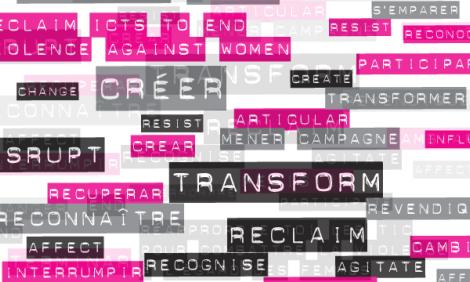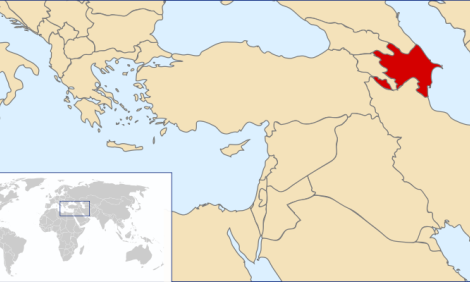
In depth
Technology as lingua franca: Interview with Caroline Tagny
A detailed conversation with activist and writer Caroline Tagny on the various campaigns that she has been part of with Take Back the Tech. The interviewer, Bianca Baldo, focuses on the politics of language in these various campaigns and the importance of content in local language to connect to and bring together people and movements. The role of French as both a language of the colonial…

In depth
Azerbaijan: When online security is synonymous with personal safety
The Seventh Internet Governance Forum will be taking place in Baku, Azerbaijan from 6 to 9 November 2012. GenderIT.org writer Zooey Schock spoke with veteran activist Dr Leyla Yunus about internet freedom and the ability to organise in post-Soviet Asia.
Feminist talk
Africa and internet governance: going global or stay local?
The impact of internet governance on Africa was discussed on September 16th 2010, in Vilnius, Lithuania. There was fair representation of all stakeholders. Officials from South Africa, Kenya and Tunisia were there; a representative from an internet service provider; and various Africa bodies that follow the process, such as AFRINIC, ISOC Africa and CICEWA. And there were representatives from…
Feminist talk
Reflecting on language and power
Looks at how power is played out in the language and terminology used in the IGF discussions, even when the theme of the discussion is "Internet governance and human rights: strategies and collaboration for empowerment".
Publication
Francophone Women's Groups in Minority Situations and ICTs
“Francophone women are less likely to use the internet than Anglophone women (40.4% compared with 55.3%, respectively)" says a survey report released lately on the Womyn's Voices website. In the spring of 2002, 50 women’s groups working in minority situations in Canada were surveyed on the use of information and communication technologies (ICTs). The project's scope is limited, looking at…
Publication
Gender & FLOSS, Asia Source Tech Camp
This statement on Gender and Free/Libre & Open Source Software (F/LOSS) was written by participants of a session on Gender & F/LOSS at the Asia Source Tech Camp, held in Bangalore on 28th January - 4th February, 2005. The Statement looks at gender in the context of the camp, with an aim to inform planning of similar F/LOSS workshops in the future.
Publication
Inclusion, diversity and gender equality: Gender Dimensions of the Free/Libre Open Source Software Development
This essay describes and analyses challenges (societal
and organisational) and advantages (e.g. new models for
mobile and collaborative work online), particularly
regarding gender issues, encountered in the recent FLOSS
development. The paper concludes with suggestions on
how to create rules and resources and the creation of a
…
and organisational) and advantages (e.g. new models for
mobile and collaborative work online), particularly
regarding gender issues, encountered in the recent FLOSS
development. The paper concludes with suggestions on
how to create rules and resources and the creation of a
…
Publication
Using a Gender-Based Analysis in Developing a Canadian Access Strategy: Background Report
The report examines universal access issues in the Canadian context.
Publication
Information and Communication Technologies (ICTs) and Gender Equality
E-discussion on the impact of ICT on gender relations and the ways ICT can be used to overcome gender inequalities. sharing ideas, opinions, concerns, and lessons learned with development practitioners, policy makers, and academics.
Publication
Gender Issues in the Information Society
This paper was published in 2003 as background material in preparation for the WSIS. It asserts that gender considerations need to be an integral component in policymaking.





